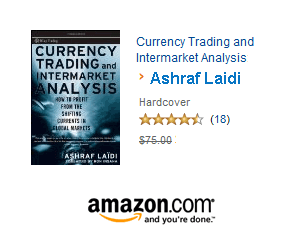Forum > View Topic
by Ashraf Laidi
Posted: Feb 20, 2010 5:00
Comments: 30765
Posted: Feb 20, 2010 5:00
Comments: 30765
Forum Topic:
EUR
Discuss EUR in this thread







http://www.zerohedge.com/article/panic-and-loathing-sp-500-pits
or just wishful thinking
with other central banks by close of play today.
In the long term, stocks outperform bonds and bonds outperform cash. Can you name a 20-year period over the past 100 years when they didn't? Unfortunately this is something that many people forget as soon as the markets get ugly. People forgot in 1974, 1987, 2002 and 2008 as they panicked and sold, only to miss a recovery in prices. Why does this happen?
We often make our long-term investment decisions using historic market data to determine an asset allocation. Market return data are typically presented in literature and marketing material using annual, quarterly and monthly returns. These periods are fine for measurement, but they often miss what is really happening day to day, especially the terrifying moments that occur over a few days or even intraday. It is these anxious periods when sleepless nights occur and when investors make emotional decisions.
Consider 1987, the year of the market crash. The stock market was down by more than 20% on a single day. That day was October 19, and it is known as Black Monday. Does this crash occur if you looked only at the total return for the year? No. The total return for the S&P 500 in 1987 was a positive 5.1%. The market crash never happened if you fell asleep on Jan. 1, 1987, and woke up one year later.
Quarterly and monthly returns are also deceptive. The S&P 500 was down by 22% from Jan. 1, 2009, through March 9, 2009. However, that loss was cut to less than 11% by the end of March, so the quarterly return was only about half as bad as what the market experienced. By the end of the year the S&P 500 was up by more than 26%. Monthly returns can also mask extreme volatility. It is not unusual for the stock market to be up or down 10% within a given month and recover by the end of the month.
Daily and intraday returns are what we live and breathe, and this is when the terrifying moments occur. We can see this movement in measures of daily and intraday price volatility as reported in the CBOE Volatility Index. Spikes in price volatility create fear and uncertainty in investors' minds. A VIX reading above 30 means investors are fearful; it's the panic people are feeling. Recently it has been rising, although it's not quite to 30. During late 2008 and early 2009, the VIX was consistently over 50 and hit 80 on more than one day.
There are a few days during every bear market when we all wonder how low the market can go. Those are the days when you cannot flip on the television, the radio or even check your e-mail without in-your-face bad news about stock prices. Those are the days when you can be certain the headlines on the six o'clock news and in the newspapers will highlight the money you are losing, and they will feature countless gurus forecasting deeper losses.
The terrifying days are also the times when you should turn off the television, tune out the gurus and take the dog for a walk. If you can't get your mind off your money, you're not sleeping at night because you are worried about your portfolio, and you are teetering on the verge of making an emotional decision to "sell it all!" then action needs to be taken. Here is what you should do:
First, look at the amount of income you are getting from your current investments. The income coming from your investments generally does not go down even though prices do. Stocks and bonds continue to pay dividends and interest. When your annual expenses can be covered by the cash flows from dividends, interest and outside income, it makes it easier to ride out a bear market. This income reality check helped a lot of my clients get through the 2008 bear market.
Second, if the income reality check does not put you at ease and you are still sick to your stomach about the future of your portfolio, you have too much stock exposure and need to permanently reduce it. How do you do that? Lower your equity position by 10 percentage points. For example, if you are at 60%, go to 50%. If you are at 40% in stocks, reduce to 30%. A 10-point reduction in equity exposure usually reduces investor anxiety long enough for the stock market to recover.
Once the 10-point reduction in stocks is completed, keep the allocation as is through the bottom of the market and beyond. Don't go back to the risk level you once had in your portfolio, because you may be setting yourself up for another emotional sell during the next bear market. This small reduction will likely have only a small effect on the long-term return of your portfolio and a huge effect on your short-term psyche.
Third, if you are still having an emotional reaction after a 10-percentage-point stock reduction in your portfolio, you still have too much risk. Reduce the equity allocation by another 10 points. This should allow you to think clearly and get past the bear market. Once you get to this level of risk,
just asking......is that DNT offered by any Asian C Bank?
Regards,
Rajib.
Euro zone data today:
06:45 GMT: French trade balance for March
10:00 GMT: German industrial production for March expected +1.5% m/m, +6.3% y/y
In a very uncertain market one thing is for certain; theres a very large 1.2500-1.3500 dnt in play. Robust defence of lower parameter can be expected.
I suggest if you wanna buy something against dollar than euro is not the right choice, look at chf.